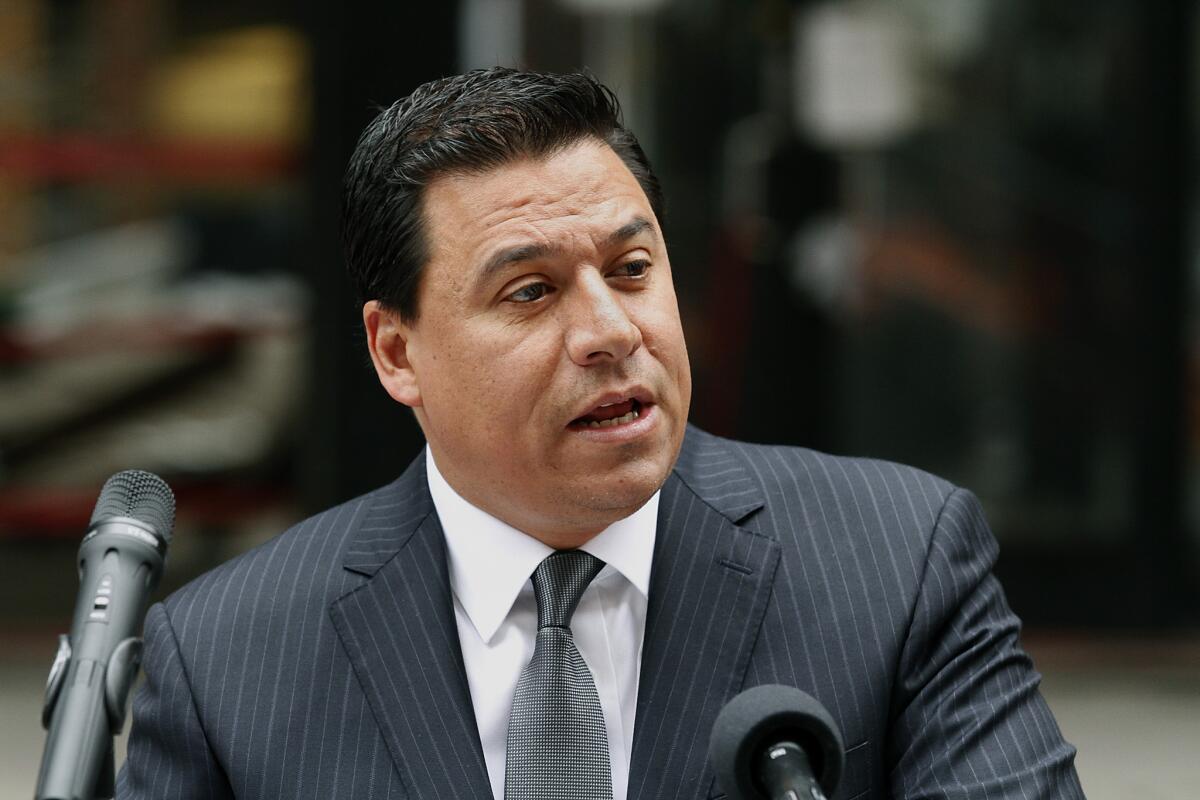Should L.A. roll back its ‘so-called boycott’ on Arizona?

Six years ago, Los Angeles lawmakers decided to bar employees from traveling to Arizona on city business, avoiding the state in reaction to a hotly contested law targeting illegal immigration. They also urged city departments to refrain from entering into contracts with Arizona businesses.
But in the years since, the City Council has repeatedly loosened those rules to allow travel to the state for meetings and training and to keep buying Tasers and other made-in-Arizona products.
The last time that city employees sought such an exemption, City Councilman Gil Cedillo complained that the “so-called boycott” had become a farce. And in an unexpected move, he said it was time to end it.
Now city lawmakers are locked in a debate over whether to roll back the rules -- and what a boycott should accomplish. The question of whether to undo the Arizona restrictions has arisen as L.A. lawmakers have embraced another boycott, this time swearing off business with North Carolina and Mississippi over recently passed laws that they denounced as discriminatory against gay, lesbian, bisexual and transgender people.
“My question is, we’re moving forward to continue to do boycotts or bans … and yet we’re rescinding another?” asked City Councilman Jose Huizar at a committee meeting Friday. He argued that rolling back the rules without carefully scrutinizing how they had worked would send a “horrible” message.
The committee ultimately held off on taking action Friday, instead asking city staffers to return with more information on how the ban had worked.
Cedillo might seem like an unlikely advocate for lifting the Arizona restrictions: As a state lawmaker, he called for California to boycott Arizona over the disputed law, SB 1070, which expanded the powers of local authorities to stop people suspected of being in the country illegally.
U.S. judge dismisses challenge of Arizona’s SB 1070 immigration law »
But Cedillo argued it was time for the city to end a “dishonest” charade. At an April meeting, he said that he wasn’t upset about the city using exemptions to ensure it could carry out important business.
However, “what I find offensive -- or unnecessary -- is for us to pretend that we have a boycott” while approving exemption after exemption, Cedillo said.
His staffers later added that seeking to roll back the Arizona ban did not mean that Cedillo wanted to reverse L.A.’s stand against SB 1070 or any other law that “promotes racial profiling” -- only the city restrictions tied to it.
Those restrictions have halted some city travel to Arizona over the years: The L.A. Police Department once decided not to send a team of helicopter pilots to a Phoenix training conference, for instance, and the City Council ultimately decided not to pursue an exemption for a National League of Cities event five years ago. But just a year into the ban, other exemptions had already spurred complaints that the gesture was an empty one.
Since L.A. first took action, many parts of the controversial law have been struck down by the Supreme Court. However, Arizona still requires police to determine the immigration status of someone who is arrested when there is reasonable suspicion that the person is not in the United States legally.
The idea of rolling back the city restrictions troubled some immigrant advocates who are ordinarily allied with Cedillo: Joseph Villela, policy director of the Coalition for Humane Immigrant Rights of Los Angeles, argued that Arizona had continued to take actions that were harmful to immigrants and the Latino community. At the Friday meeting, Villela contended that L.A. should update the wording of its boycott instead of canceling it.
Huizar and other lawmakers, in turn, said they wanted more information on how often the restrictions had been lifted before deciding what to do. City staffers are supposed to report back with that information in 45 to 60 days.
“I support a ban – but I mean a real ban, not one that is laden with loopholes,” Council President Herb Wesson said Friday.
ALSO
Editorial: Why should immigration detainees be denied access to telephones?
What it could look like if Donald Trump’s broader immigration ban were implemented
Immigration law can’t discriminate against ‘habitual drunkards,’ court rules
More to Read
Sign up for Essential California
The most important California stories and recommendations in your inbox every morning.
You may occasionally receive promotional content from the Los Angeles Times.











